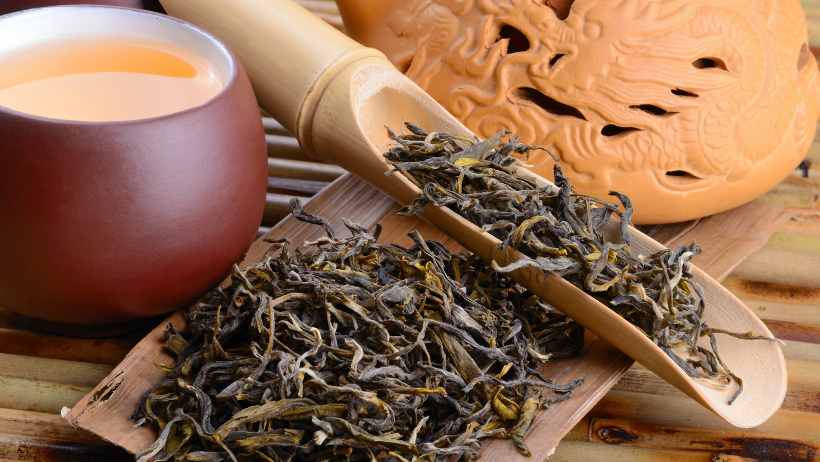
This article examines the health benefits of oolong tea, an antioxidant-rich traditional Chinese tea. Produced from the leaves of the Camellia sinensis plant, oolong tea is subjected to a partial oxidation process that yields an exceptional combination of advantageous compounds, including catechins.
According to studies, oolong tea consumption may promote cardiovascular health by lowering blood pressure and lipid levels. Moreover, the tea is replete with phytochemicals that exhibit antioxidant properties, thereby potentially mitigating the likelihood of developing specific types of cancer.
In addition, there is evidence that oolong tea enhances cognitive health, thereby decreasing the likelihood of developing depression and cognitive decline. Oolong tea is regarded as a balanced and nutritious beverage choice due to its minimal caloric and mineral content.
Those who are sensitive to caffeine, however, should limit their intake. Oolong tea can be savored unsweetened or infused with sweeteners such as honey and citrus. In addition to being available online and in specialty tea shops, oolong tea has an extended expiration life when stored properly.
Advantages for Health of Oolong Tea
Oolong tea, a traditional Chinese beverage, has garnered global recognition owing to its extensive array of health advantages. It is abundant in antioxidants, which aid in protecting the body from free radical injury. This article will examine the numerous health benefits associated with oolong tea.
Reducing arterial pressure
A potential health benefit of oolong tea is its ability to reduce blood pressure. Untreated hypertension, also known as high blood pressure, is a prevalent medical condition that may give rise to a range of cardiovascular complications. Regular consumption of oolong tea has been shown to reduce diastolic and systolic blood pressure, according to research. The observed effect may be attributed to the antioxidant catechins, which are present in oolong tea. Research has demonstrated that these catechins facilitate vasoconstriction, leading to enhanced dialysis and decreased cardiac workload.
Contributing to Brain Health
An additional persuasive rationale for integrating oolong tea into one’s daily regimen is its potential to promote cognitive well-being. Caffeine, which is present in oolong tea, has the potential to improve cognitive functions such as attention, memory, and reaction time. Additionally, it is composed of the amino acid theanine, which has been demonstrated to induce relaxation and alleviate anxiety. Oolong tea’s caffeine and theanine content may contribute to heightened cognitive acuity and concentration, rendering it a highly suitable option for individuals seeking to optimize their cognitive capabilities.
Contributing to Heart Health
Additionally, oolong tea consumption can benefit cardiovascular health. Consistent oolong tea consumption may reduce the risk of developing cardiovascular diseases, such as stroke and heart disease, according to research. The tea’s capacity to decrease lipid levels and blood pressure is the reason for this. Research has demonstrated that oolong tea reduces levels of LDL cholesterol, also known as “bad” cholesterol, while increasing levels of HDL cholesterol, or “good” cholesterol. Through the regulation of cholesterol levels, oolong tea has the potential to contribute to the preservation of cardiovascular health.
Mitigating the Hazard of Cancer
Oolong tea has attracted considerable interest due to its purported anti-cancer attributes. The substance is composed of a diverse array of polyphenols, such as thearubigins, catechins, and theaflavins, all of which exhibit potent anti-inflammatory and antioxidant properties. Certain forms of cancer, including oral squamous cell carcinoma, are less likely to develop as evidenced by the inhibitory effects of these compounds on cancer cell proliferation. Although additional research is required to comprehensively elucidate the underlying mechanism of this effect, the potential association between oolong tea consumption and a diminished risk of specific malignancies warrants consideration.
Enhancing Cognitive Function
Overall well-being is contingent upon cognitive health, and oolong tea might contribute to the preservation of cognitive function. Oolong tea’s caffeine and theanine constituents have the potential to induce cerebral stimulation, resulting in enhanced mental acuity and functionality. In addition, a number of studies have indicated that consuming oolong tea may mitigate the symptoms of depression and reduce the risk of cognitive decline. The aforementioned results underscore the possible cognitive advantages associated with oolong tea, thereby rationalizing its consideration as a beverage for individuals aiming to preserve and enhance their mental health.
Insufficient in Calories
For individuals who prioritize calorie restriction, oolong tea emerges as a highly commendable beverage option. Oolong tea, in contrast to sugary beverages and fruit liquids, is calorie-free. For added flavor, it may be consumed plain, with a squeeze of lemon, or with a spoonful of honey. By replacing calorically dense beverages with oolong tea, one can actively promote a calorie deficit, an essential factor in maintaining optimal weight and overall well-being.
Incorporates Healthful Minerals
Better for the body, oolong tea contains essential minerals in addition to its antioxidant properties. Manganese, potassium, magnesium, and calcium are among these minerals, albeit in trace quantities. Potassium is essential for maintaining heart health and appropriate muscle function, whereas manganese is essential for regulating metabolism and bone health. Over 300 enzymatic reactions in the body require magnesium, whereas calcium promotes healthy bones and teeth. Although oolong tea may not contain a substantial amount of minerals, even a small amount can help promote a well-balanced diet.
Modesty and Safety
Although oolong tea provides a multitude of health advantages, its consumption should be kept in check. Caffeine, an ingredient in oolong tea, may cause stimulant effects in the body. While moderate caffeine consumption does not cause adverse effects in the majority of individuals, caffeine-sensitive individuals should proceed with caution. Caffeine overconsumption may result in anxiety, digestive issues, and an elevated pulse rate, among other symptoms. It is recommended to restrict the consumption of oolong tea and exercise caution regarding caffeine sensitivity in order to prevent any potential discomfort or adverse health consequences.
Appreciating Oolong Tea
Oolong tea may be savored in a multitude of methods, contingent upon individual inclination. Certain individuals opt for a bland beverage, which permits them to fully appreciate the distinctive flavors and fragrances. A teaspoon of honey or a squeeze of lemon may be added by some individuals in an effort to enhance the flavor. By experimenting with various preparations, one can discover the optimal method for savoring oolong tea. Caffeine is present in oolong tea; therefore, it is frequently ingested in the morning or afternoon to prevent disruptions to sleep.
Acquisition and Storage
It is recommended that individuals seeking to acquire oolong tea consult a reliable source, such as specialty tea stores or reputable online vendors. They are more likely to provide oolong tea of superior quality that has undergone appropriate processing and storage. Additionally, the packaging and expiration date must be examined to ensure freshness. In order to preserve the flavor and quality of oolong tea, proper storage is vital. It ought to be stored in a dry, cold location, shielded from powerful odors and direct sunlight. Oolong tea has a lengthy shelf life and can be savored for a prolonged duration when stored appropriately.
In summary, oolong tea provides an extensive array of health advantages, rendering it a highly beneficial supplement to one’s daily regimen. By promoting cardiovascular health and cognitive function and mitigating the likelihood of specific malignancies, oolong tea possesses the capacity to augment one’s holistic welfare. However, moderation is required when consuming oolong tea, particularly for those who are sensitive to caffeine. The integration of oolong tea into a well-balanced diet and lifestyle can provide individuals with access to a multitude of benefits. Therefore, prepare a cup of oolong tea for yourself and savor its delectable flavor and potential health benefits.










